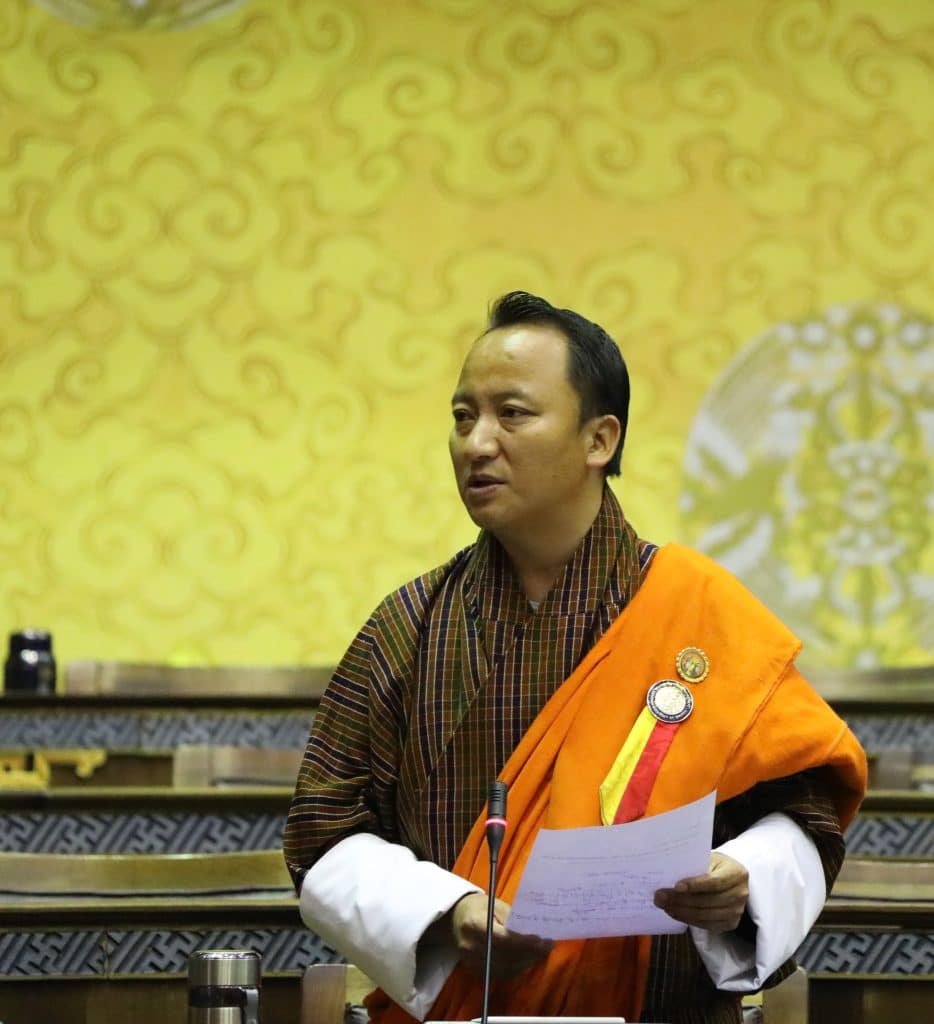The Implementation of the GST has been deferred due to the problem with the Bhutan Integrated Taxation System (BITS)
The members of the National Council questioned the finance minister on foregone revenue due to the delayed implementation of the Goods and Services Tax (GST).
Finance Minister Namgay Tshering, who is the member in charge of the Bill, introduced the GST Bill of Bhutan 2022 in the National Council session on June 22.
According to the Finance Minister, when the government initiated to harmonize the tax system through the introduction of GST, the government proposed reduction and exemption of taxes like sale tax, income tax, tax amendments, customs duty, and etc. About Nu 826.03mn is the foregone tax due to GST initiation.
The above reduction and exemptions were passed and made effective in mid-January 2020. However, the GST could not be commenced due to the problem with the Bhutan Integrated Taxation System (BITS).
However, NC members said that the government incurred a revenue loss of Nu 1,652mn in two years. If GST was ready and implemented, the government could have earned Nu 3bn as per preliminary assessment.
NC representative of Trashigang Lhatu questioned the finance minister about whether the government has recovered the foregone tax revenue or if it is adjusted from other sources.
The MP said that if the foregone tax is adjusted, there is no issue. “Otherwise, who is going to take the responsibility and accountability for the foregone tax revenue?”
Similarly, the NC representative of Chhukha, MP Sangay Dorji asked the finance minister who should be responsible for failing to establish and implement the system and wasting the government’s investment.
“Is Thimphu TechPark, the Armenian company, or the ministry responsible,” the MP questioned.
Meanwhile, it was reported that of the Nu 570mn allocated for GST system development, Nu 220 has been invested.
NC representative of Bumthang Nima said since the proposal of GST development the members had recommended the government to go in line with the Public Finance (Amendment) Act 2012.
The MP said that the deferment is not in line with the Public Finance (Amendment) 46 (b) Act, which states that the imposition or increase of any tax or abolition, reduction, or remission of any existing tax, once passed as law by Parliament shall be applied retroactively from the date it was initially tabled in the National Assembly.
Finance Minister responded that there has always been tax leakage in the country and there is a need for establishing a systematic taxation system.
According to the minister, quite often goods imported from the borders are not taxed unless caught by customs officials. Introducing the GST is about the government broadening the tax base for the long-term benefit of the country, and one should not be concerned about foregone tax.
The minister informed the House that the GST is a ‘destination and consumption tax’.
“There is no political motive or craving for name and fame, but we propose deferment of the Bill amendment. We expect reciprocity,” the minister added.
The minister said that he is also aware of the Public Finance Amendment Act and there is also a need to change those laws.
Responding to the wastage of investment, the minister said the government is looking for a way forward to work and if the work done can be salvaged.
The minister said that one should not think only of the tangible outcome. “There are intangible outcomes from the initiation, where studies are done and systems are adopted.”
The minister also said that if the government is to implement the GST, the system is not ready and it may not go well as it is not fully developed.
However, the minister said the GST is a part of the Digital Drukyul Flagship Program and it will be implemented before the present government completes its term.
Sangay Rabten from Thimphu












